Switzerland is well-known all over the world for it has not been in a state of war internationally since 1815. Nevertheless, it pursues an active foreign policy and is frequently involved in peace-building processes around the world. And Geneva, the second largest city in Switzerland, is the home to the Red Cross as well as the second largest UN office.
When talking about the country, people usually think about its brands of luxurious watches such as OMEGA and IWC, the mountain Alps and skiing, which are the famous symbols of this country.
After spending several years of life in Zurich, which is the largest city in Switzerland as well as one of the two global and economic centers (the other one is Geneva), the image of the country becomes more real in my mind, it’s never an illusionary ‘luxury, large, level up’ paradise for billionaires only, while it’s rather a safe, beautiful and harmonious homeland and dreamland for us, the majority of normal people who work and live in the society. Spiritual abundance and inner peace are two key features that I admire most of the local Swiss people indeed. As my neighbor and friend once told me, “You can totally forget the flashy brands of luxuries on the Bahnhof Strasse yelling for money from the rich people's pocket, while enjoy life with hiking, cycling, skiing and viewing the natural landscape almost everywhere outside."
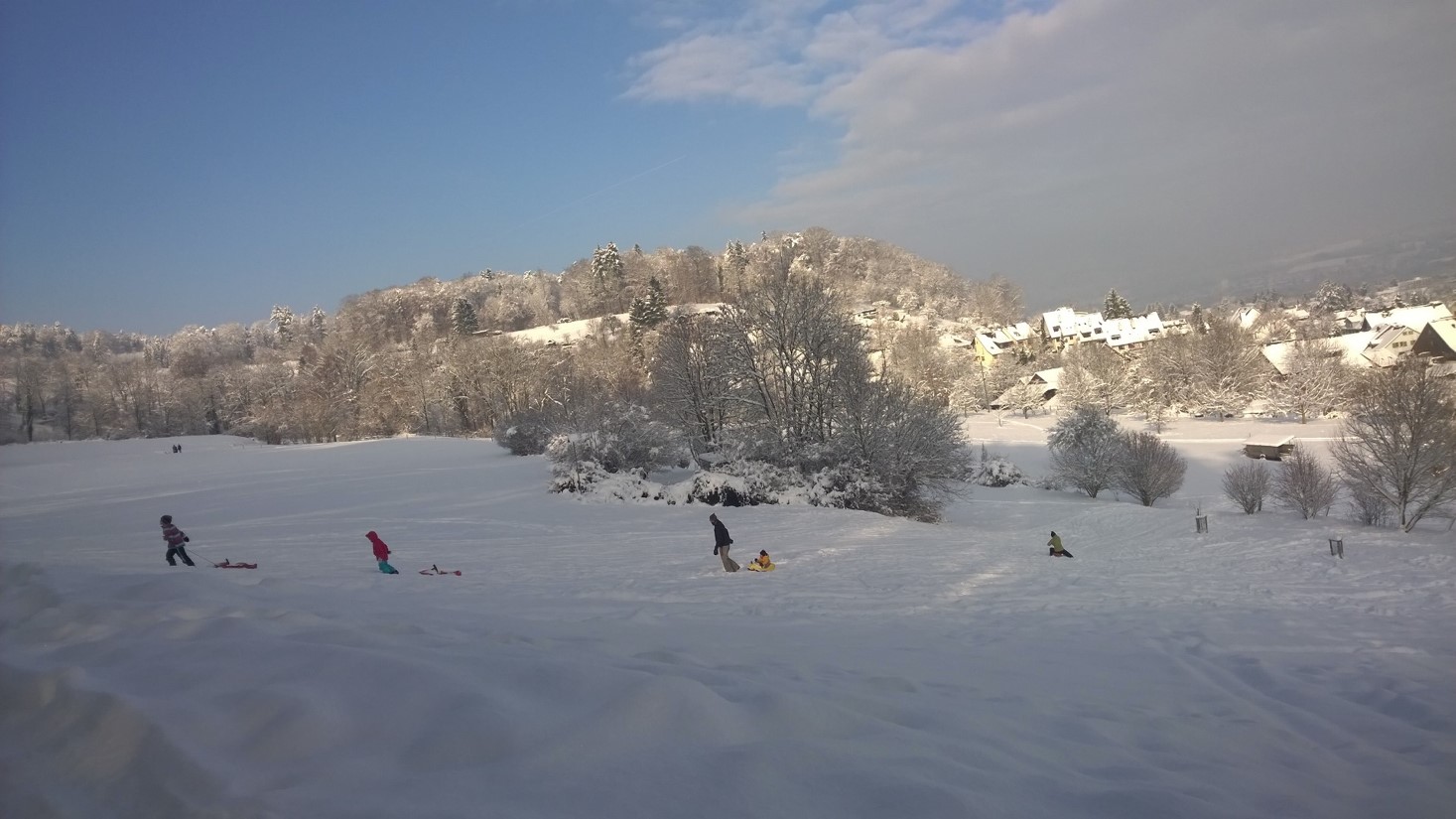
Swiss people are fond of traveling. In fact, Switzerland has the world most user-friendly public transportation system. Trains, trams, buses, and the stations are specially designed and facilitated with coaches and facilities which are conveniently accessible by baby strollers, kid buggies, bicycles and even wheelchairs. Therefore everyone, young and old, sound and disabled, can go out enjoying traveling via the public transit, across the country as well as Europe. Actually it's a small country situated in Western and Central Europe, with the neighbor Italy to the south, France to the west, Germany to the north, and Austria and Liechtenstein to the east. Surrounded by these Germanic and Romance neighbors, Switzerland comprises four main linguistic and cultural regions: German, French, Italian and Romansh. Therefore it's not surprising that during the first half of your journey, passengers besides talk with Swiss German, while later the newcomers get on at Lucerne shift to a soft French speech.
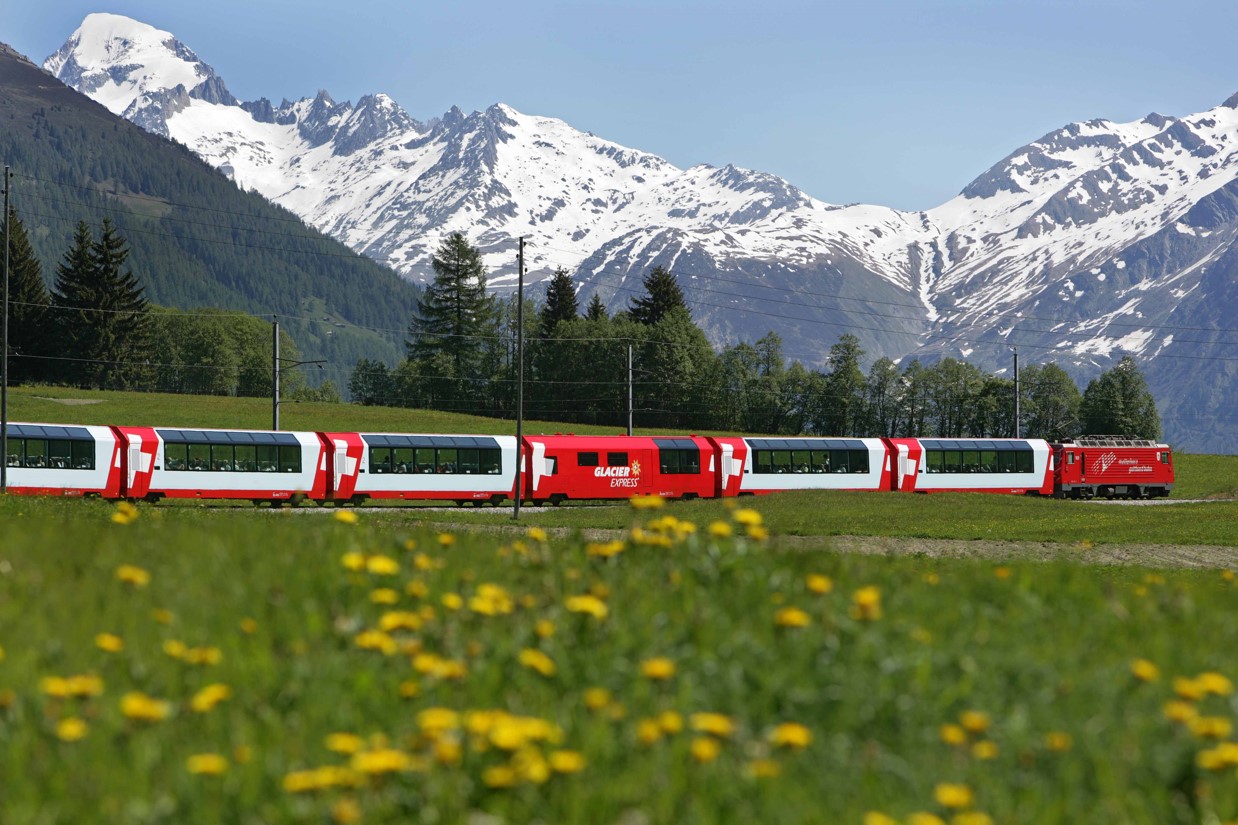
People here cherish the natural resources: mountains, rivers, land, air, forests, plants, wild animals, etc.. Every resident here is the real environment protector. Household wastes need to be classified and organized before disposal to a special waste bin. Bio-waste, papers, paper packages, glass, metals, and old textiles, all of which could be recycled and regenerated, there are special cleaning teams coming to your community for collection on a certain day every week/month. The society is highly organized and in great order.
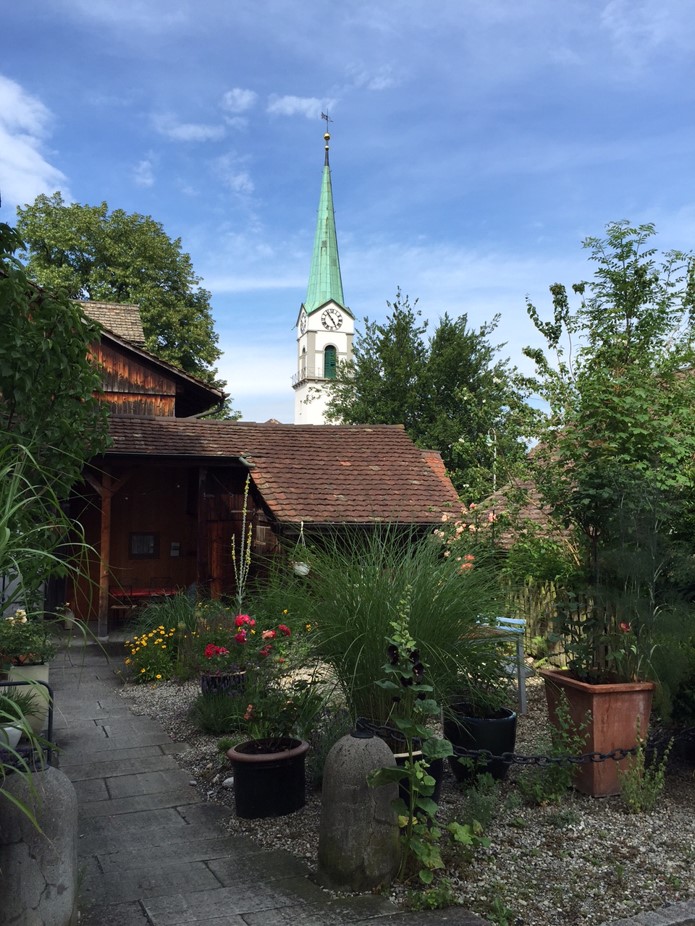
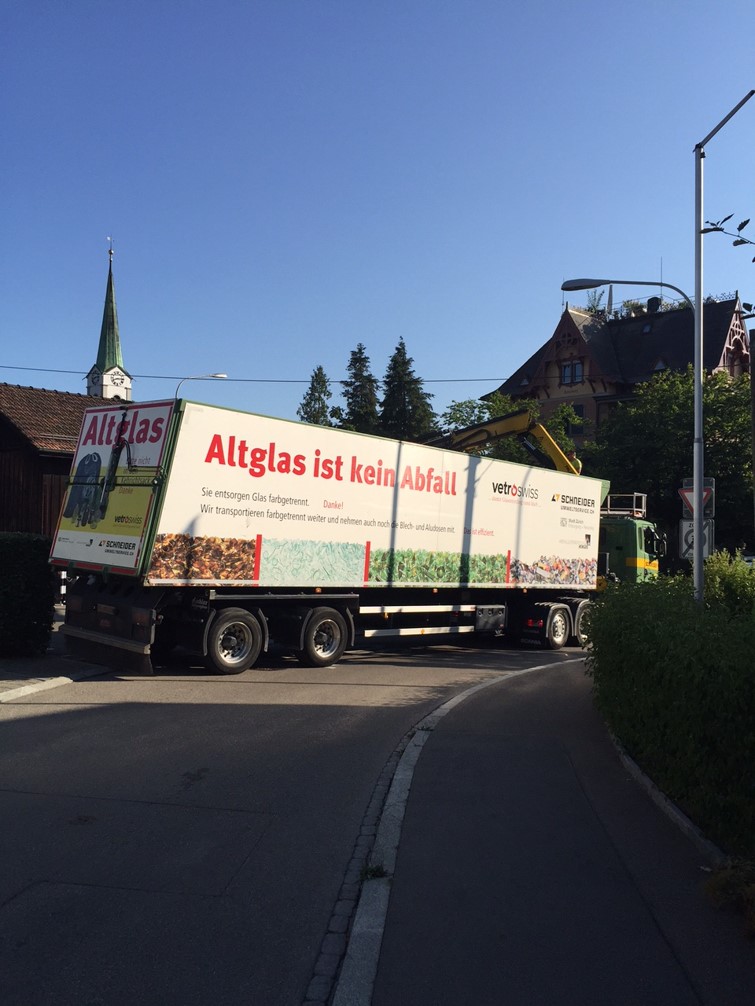
A famous case for people’s endeavor to protect the environment is their success in opposing any hydropower station project on the famous Rhine falls. The fall is the largest plain waterfall in Europe, which is located near the town of Schaffhausen in northern Switzerland, around 40mins by train from the main train station in Zurich. Tourists have been awed by the Rhine Falls for centuries. As a writer Mary Shelley wrote in her book in 1844, "A portion of the cataract arches over the lowest platform, and the spray fell thickly on us, as standing on it and looking up, we saw wave, and rock, and cloud, and the clear heavens through its glittering ever-moving veil. This was a new sight, exceeding anything I had ever before seen; however, not to be wet through, I was obliged quickly to tear myself away." But can you imagine that such a fabulous natural heritage, used to be in the danger of being destroyed, for the sake of economic benefit by launching a water electric power project, by previous government leaders. In their eyes, “If the full water flow were used, the power generated would average approximately 50 MW. The economic value of the falls as a tourist attraction may be greater.” However, the plan and consideration had been postponed and stranded because people’s opposition. As recorded, “In 1944, the Swiss Council of States granted permission to build the proposed power station. The permission was to become effective on 1 February 1948, with construction to begin in 1952. But in 1951, the Neuen Helvetischen Gesellschaft (New Swiss Society), under the leadership of Emil Egli, got 150,000 Swiss citizens to sign a petition protesting the project; among the signatories were 49 famous citizens, including Hermann Hesse and Carl Jacob Burckhardt. The petition not only scuttled the power station project, but effectively prevented all future hydropower and navigation engineering projects on the upper Rhine to the present day.”
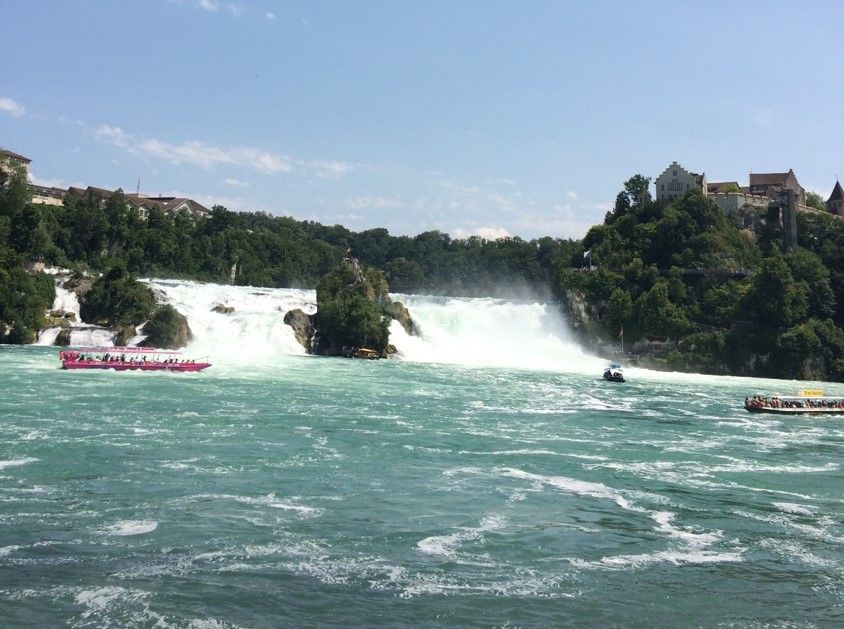
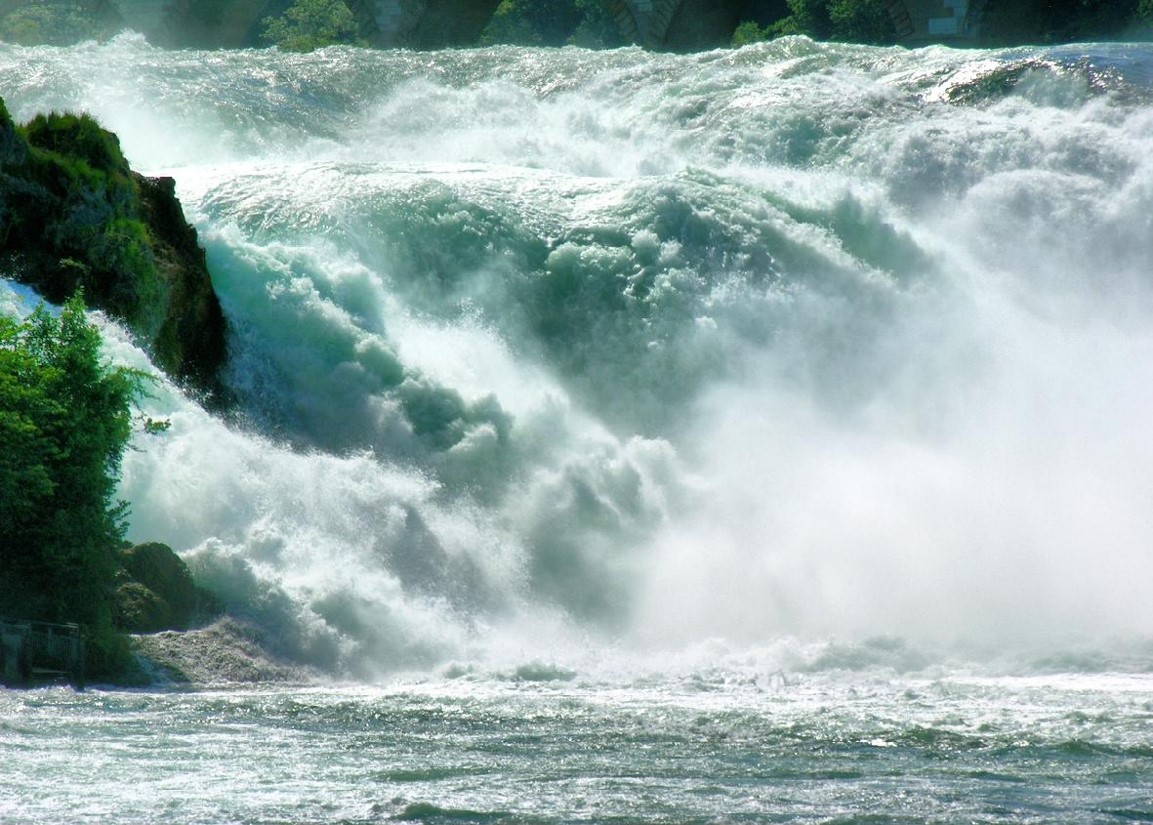
One more interesting tip, you may also wonder why the abbreviation for Switzerland is CH. And here is the answer, from its Latin name ‘Confoederatio Helvetica’, which means the Swiss Confederation, comes with the cute CH (previously I used to mistake it with the CN for China).







Comment